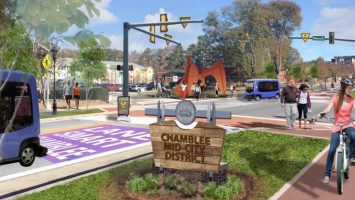
As part of a series exploring smart city efforts from the mouths of those advocating project implementation municipalities around the country, we interviewed Nina D’Amato, Chief of Staff, Department of Technology, City and County of San Francisco. Here’s what she shared with us:
(SCC): What does smart city transformation mean to you?
(ND): ‘Smart’ to me begins with a responsive, user-centered, designed community. (We must be) continually pulsing the residents and understanding what their needs are and what the expectations are of our local communities. Smart means taking technology and weaving it tightly into managing and delivering services to communities and neighborhoods. It means being able to respond to the current needs of the population and anticipate the future needs of cities. As the world’s cities grow and expand, technology needs to be part of that growth—but it starts with understanding what residents need.
(SCC): What smart cities work are you most proud of, thus far?
(ND): The City of San Francisco has just released an RFQ that is a public/private partnership that aims to deliver broadband to every resident and home. This is the kind of effort that pushes local providers to understand internet access as a utility—an expectation and less as a privilege.
(SCC): In your community, what is the holy grail of ‘smart’. In other words, what is the highest and best thing that could result from growing as a smart community?
(ND): Efficient delivery of government services that is reflective of 21st century expectations.
(SCC): What keeps you up at night? What challenge still has you stumped?
(ND): Limited use of data to make decisions.
(SCC): What advice have you been given that really hit home and made a difference for you as leader of smart city efforts?
(ND): Be patient. As a change agent, you will tell your story over and over again—trying to convince people in numerous ways about a viable way into the future.
(SCC): If you could wave a wand and educate residents of your community about a single thing, instantly, what would you have them know?
(ND): I would have them come to the realization that old systems—or the 20th century systems– are decrepit and not sustainable in the age of information. Societies—especially cities–have changed dramatically and government service delivery must be redesigned to support the demands of the populace. We need help figuring it out.


